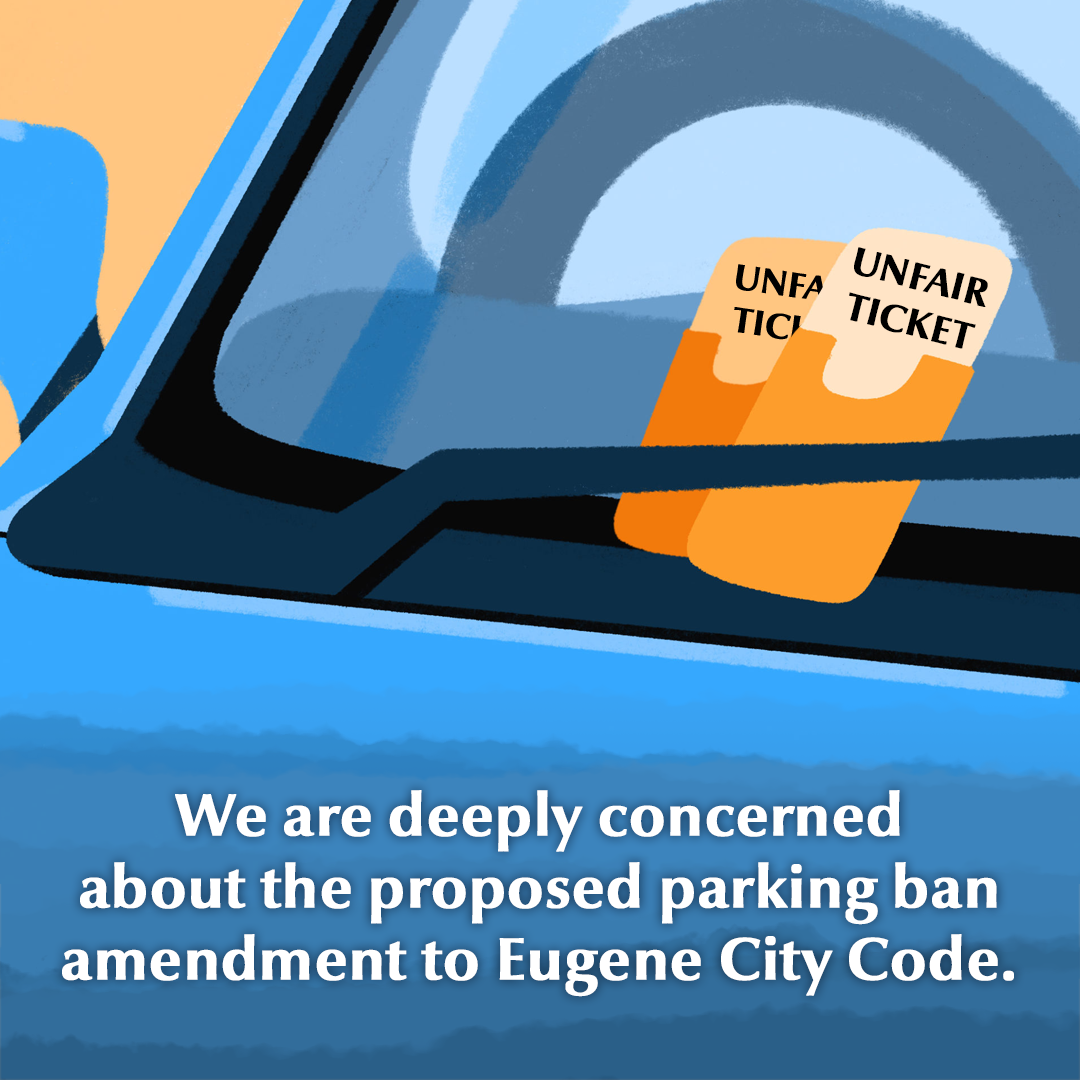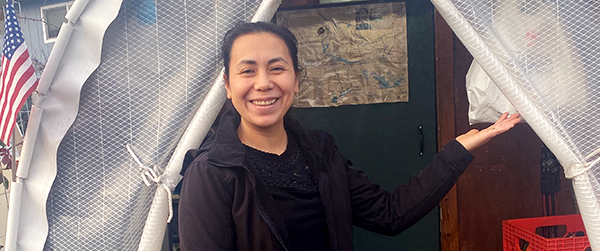News & Events
To stay connected and learn about upcoming events, subscribe to our quarterly newsletter and follow us on social media.
If you are a member of the media who is seeking information or would like to request an interview, contact community@cssoregon.org.
Incarceration and Homelessness: Breaking the Cycle
Jan. 15, 2023 - By Guy Maynard
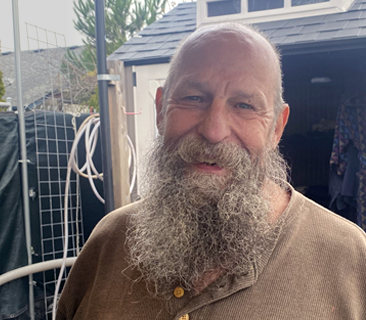
Formerly incarcerated people are almost ten times more likely to be homeless than the general population, according to a study from the Prison Policy Initiative.
Jack spent 27 years in prison, from the age of 33 to 60. “It is a long time. It's an entire lifetime,” he says. At first, he thought he might never get out and continued what he calls “bad behavior.” But he saw others who participated in educational programs and were successful in getting their sentences reduced. He realized if he started “acting right,” he might get out. He especially credits a program called “Nonviolent Communication” with helping him. He started using what he learned and realized that “the person we communicate worst with is ourselves.”
When he was released in 2015, he went to Sponsors, a Eugene program that helps people coming out of incarceration to rebuild their lives. After less than six months, he moved into a nearby rental house, with the landlord agreeing that he could pay his rent by working on the house. Things were relatively stable for him for several years, but some people who had been displaced from housing in his neighborhood started staying in his backyard, and some tapped into his electric lines. His electricity bill soared beyond what he could pay with his monthly Social Security check. At the same time, he was trying to help a younger sister who was dying of cancer and he rolled a pick-up truck. He lost the house. “You’d have thought I was trying to write a country and western song,” he says. “I sort of gave up.” He was unhoused for four years before getting a Hut in the CSS Skinner Village Community about a year ago.
----------------------------------
The Prison Policy Institute study cited earlier also found that people who have been to prison more than once are 13 times more likely to be homeless, “and even [formerly incarcerated] people who have spent several years in the community were four times more likely to be homeless than the general population.”
A 2022 Oregon Department of Corrections Inmate Profile showed that 70 percent of inmates have issues with substance addiction or abuse. In addition, studies show that most incarcerated people are poor, and the poorest are women and people of color. All those challenges can be overwhelming for people also dealing with the emotional toll of being locked away from society.
“The biggest barrier is the obvious one,” says Annie Herz, Executive Director of Sponsors (and formerly a volunteer and staff member at CSS). “Just having a conviction history, particularly without any of the type of supports that we offer, can be a barrier that stops the process.”
“I think probably the other really big thing is cost and housing availability,” says Paul Solomon, former Executive Director and currently Senior Advisor at Sponsors. “Last I looked, the vacancy rate in Lane County was like 1.8 percent. It's not uncommon for our folks to come out of prison, get a job that pays 15 to 20 bucks an hour, and have maybe half of that in disposable income after fines, fees, and debt. So then, if you've got $7.50 an hour in disposable income, it doesn't go very far towards housing.”
Piled on the roadblocks of history, possible substance abuse, and current economic and financial conditions is the stigma of being an “ex-con,” says MJ, who has been homeless and in prison and has served in a variety of staff positions for CSS. “I will include myself in this because of my past: people aren’t treated like humans; they’re treated like a number.”
----------------------------------
Over the last 35 years, 65-75 percent of the people who enter the Sponsors program complete it successfully, according to Solomon, which means they have a source of stable income, have stable housing, are compliant with the conditions of their release from prison, are clean and sober, and have successfully engaged in Sponsors programming. Jack and MJ (who spent about two months in Sponsors after her release) completed the program. Sponsors statistics don’t generally cover how former participants are doing “two or three years down the road,” Solomon says.
It’s not unusual for people to encounter serious setbacks after leaving Sponsors, Solomon says, “When they come through our programs, and they do really well, and they go out and they're successful for a period of time, and then everything falls apart, sometimes they don't come back to us because they feel bad and ashamed. That's really unfortunate because the fact of the matter is that sometimes it takes a while to get it right. It's not uncommon for us to have people who've been through this program half a dozen times going in and out of custody. And you never know when that right moment is, where the stars align.” The services of the Sponsors’ Reentry Resource Center are available to anybody in Lane County with a conviction record.
Since 2018, Sponsors has been engaged in a project to place clients into its Permanent Supportive Housing program. The initial goal was 125 people over five years, but by late 2023, they had placed more than 200. According to preliminary data for the first 195, 87 percent were still in stable housing, and there was a 75 percent reduction in recidivism, defined as returning to prison with a new felony conviction. “It speaks to the value of Permanent Supportive Housing,” Solomon says.
----------------------------------
Jack has started feeling hopeful after a year in the CSS community.
“They re-birthed hope because there was a long time when I didn't think I was ever going to be able to make anything work out.
[CSS gets] you in here, and they get you to volunteer, and they give you an opportunity to go to work and get paid. It's made me realize that you can go out, you can work.” While living in his car, he says, “I could get lost in there. I like to get up, get moving, and get something going for my day.
“It's not just a little Hut, you know, a place to be, but it’s also a place to work.
You end up being around more people. I had isolated myself for a long time, so I started to come back out and look around.” Jack is now on the CSS staff, spending 12-14 hours a week running the shower program and doing laundry for all the CSS communities.
Jack says because of his age (69) and experience, others in the Skinner Village Community look to him for guidance. “Some of them have been to prison before. I seem to attract broken people because I make them feel comfortable. When you've lived a life of brokenness, you don't always feel comfortable around other people.”
He recognizes the discrimination that people with prison records face, but sees an inner challenge for them, too. “We believe that people have got such a f***ed up opinion of us, having been to prison, that we build that up in our head. We're our own worst enemy when it comes to some of this stuff. They’re overwhelmed just trying to talk to a grocery clerk. They just don't think people want to talk to them. They feel so ostracized from having gone through prison and probably whatever got them to prison. These are broken people. They've been beaten. They've been molested. They've been treated horribly in their life. And where do you find relief from that?
“I feel like I found some help to maybe get me a place to live,” Jack says. “I gotta carry my own little demons with me every day and try to make sure they don't cause me any problems while I'm traveling through the day. It's a full time job sometimes to do that.”
He tells others “to get on the list, go through the process and it works. I've watched guys that were in this camp actually follow through, go talk to the counselors, go talk to the people that can help you. And when you do that, people help. There are people in positions that can help you, but you have to find them and you have to be able to talk to them.”
MJ says CSS has helped community members to build self-esteem and trust by encouraging them to volunteer to serve the communities and by hiring more members for CSS staff jobs. “I really believe that you can’t do anything if you don’t have stable ground to stand on.” She tells of a client named Rudy. “He’s got a big path of struggles behind him, so it’s really hard for him to get a job.” But since he got a CSS staff position, “He loves it. It's built his self-esteem, you can see it. He's become more communicative. He's made all these new friends.”
----------------------------------
In addition to supporting organizations like Community Supported Shelters and Sponsors, which serve people who face the dual challenges of past incarceration and homelessness, what can people in the broader community do to help?
“Start making them feel human, for Christ’s sake,” says MJ.
“It's not a matter of being good or bad humans,” says Annie Herz of Sponsors. “It's recognizing the complexity in the human experience and not casting aside this whole population of people who have made mistakes.”
“These people, by and large, are folks that have been born and raised in this community,” says Solomon. “They are our neighbors. They are our brothers, our sisters, our friends. They weren't born bad. They had rough lives and done, in some cases, some really bad things, but that doesn't make them evil.”
Solomon also suggests advocacy on public policy issues including criminal justice reform. The decriminalization of drugs in Oregon hasn’t worked as well as some people might have hoped, he says, but it’s important to address those problems in a “progressive” way, rather than “revert to the failed drug policies of the past.” Sponsors is also supporting efforts in the state legislature to make the expungement (removing criminal history from people’s records) process easier, so people are not shackled by past convictions long after they have served their time and changed their lives.
The success of the Sponsors project placing people in Permanent Supportive Housing shows what can be done when enough resources are invested in helping people overcome the barriers of criminal history and homelessness, and the trauma, addiction, and poverty that often go along with that history.
“People need to band together” to advocate for creative ways to provide necessary services and more truly affordable housing in Lane County, says MJ, especially in light of the new surge of homelessness following the end of pandemic-era housing subsidies and moratoriums on evictions.
Most immediately, perhaps, we can try to be the kind people that Jack talked about—whether we are landlords or employers or co-workers or neighbors—people willing to give people another chance.
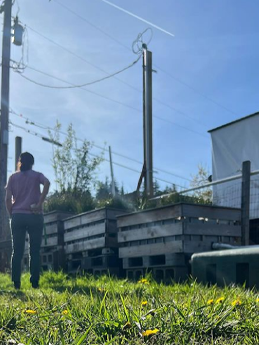
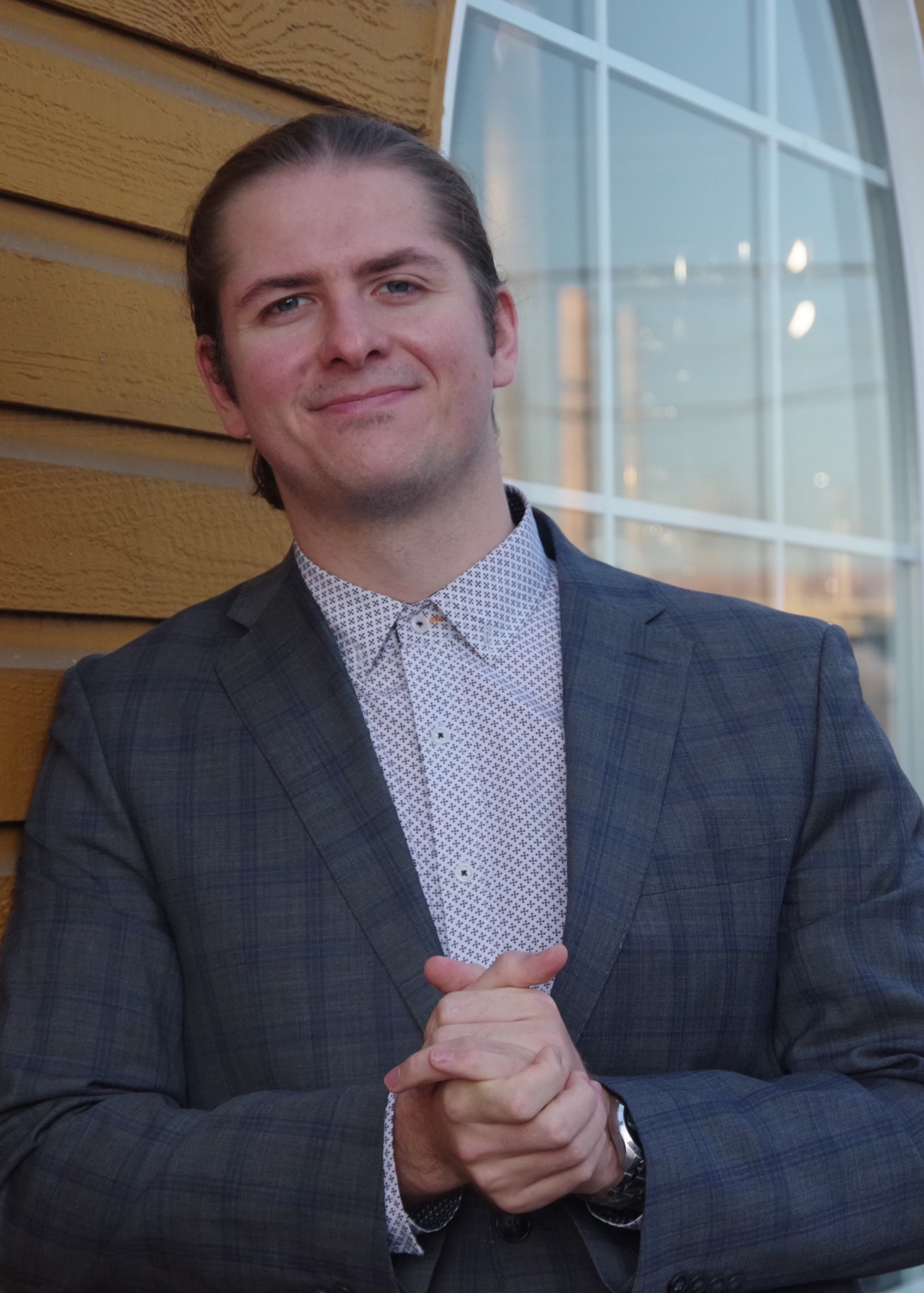
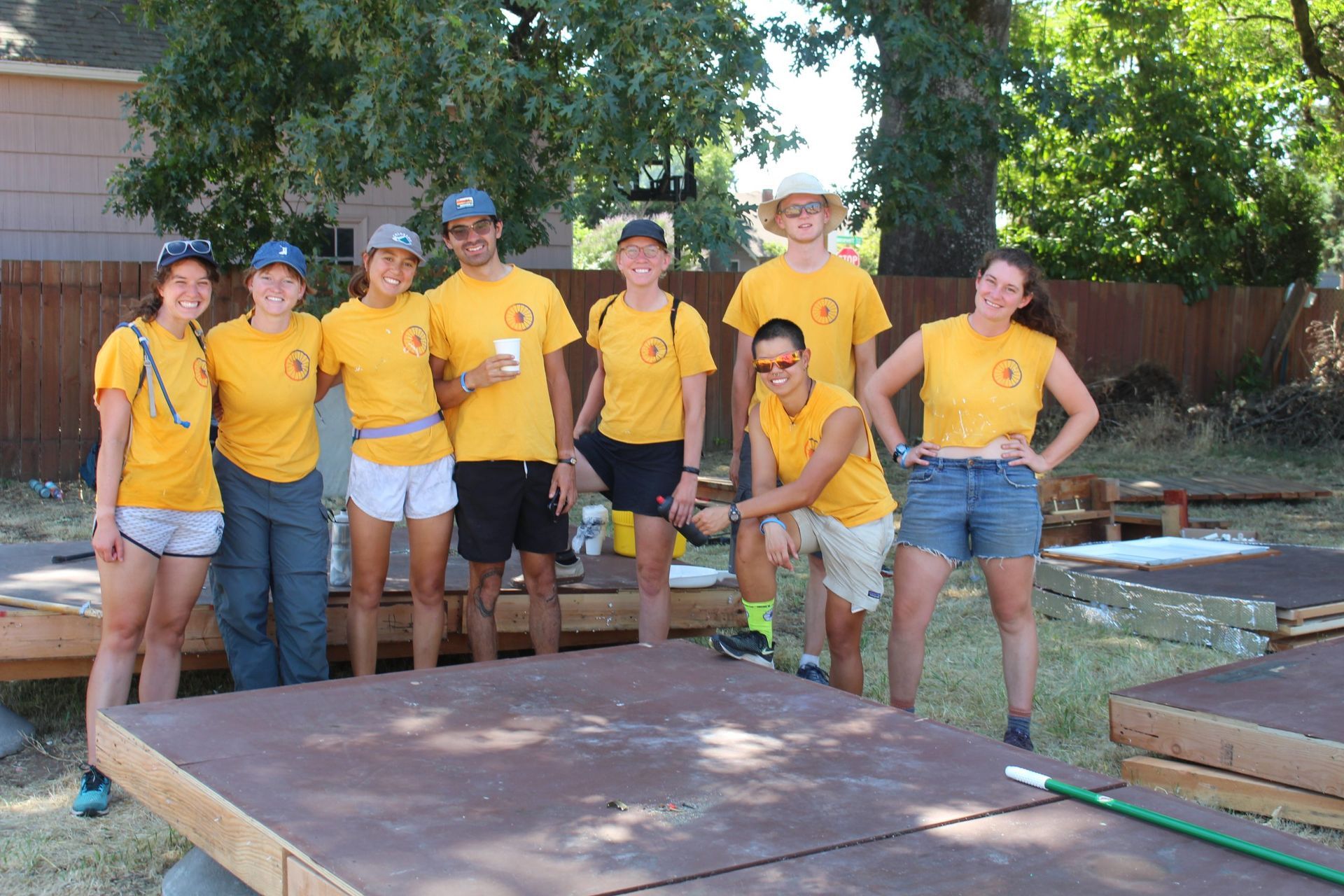
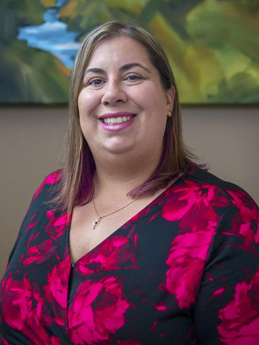

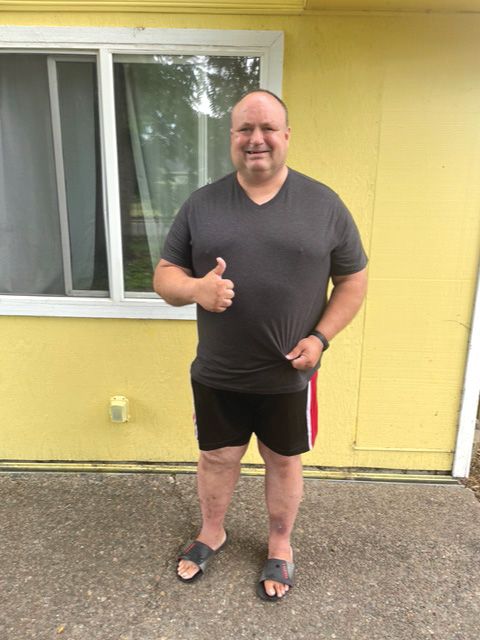
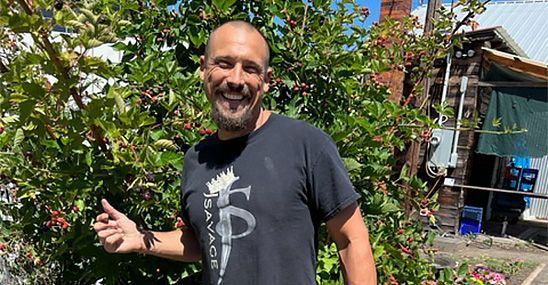
Community Supported Shelters
1160 Grant Street
Eugene, OR 97402
Public Office Hours:
Tue-Fri, 1-4 p.m.
Finance and Tax Information
We are a 501(c)(3) organization, and you may take a tax deduction to the full extent allowed by law for your contribution to us.
(EIN#: 46-2377054)
Newsletter
To stay connected to CSS and learn about upcoming events, subscribe to our quarterly newsletter.
All Rights Reserved | Community Supported Shelters | This site is powered by Neon One


